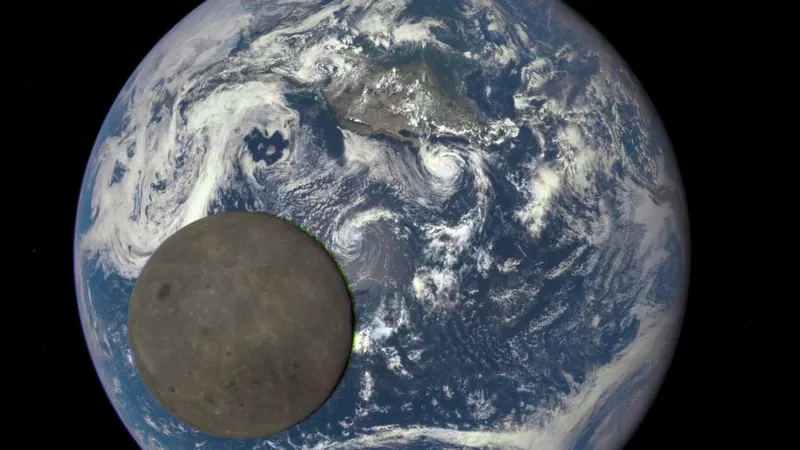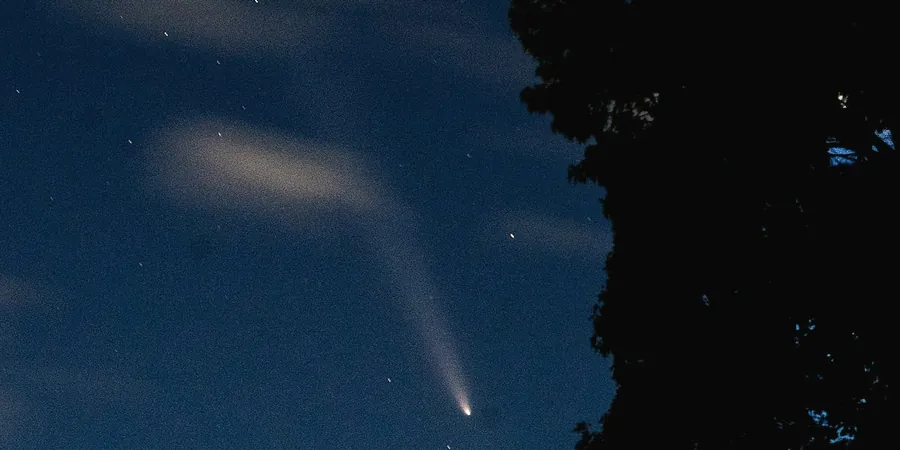
The Satellite Truth: Unraveling Climate Change from Space - What's Next?
2024-10-10
Author: Jia
In a quest to understand our universe, space agencies like NASA and the European Space Agency (ESA) have turned their gaze back to Earth. While space exploration is fascinating, an alarming reality emerges when we study what’s happening on our own planet's surface. From weather fluctuations to the disastrous impacts of human activities such as greenhouse gas emissions, deforestation, and diminishing ice coverage in the polar regions, satellite data paints a harrowing picture of climate change.
Since the deployment of Landsat Earth Observation satellites in 1972, the U.S Geological Survey has been at the forefront of providing ongoing updates on various features of Earth. The findings reveal a grim reality: shrinking polar ice caps, loss of biodiversity, and increasingly polluted oceans—the plight of our planet is advancing at an alarming rate.
One pressing question remains, however: Why hasn’t this overwhelming evidence spurred significant environmental action?
Inès Otosaka, Director for Operations of the NERC Centre for Polar Observation and Modeling (CPOM), notes that we can precisely monitor the dramatic losses in the Greenland and Antarctic ice sheets via satellite technology by tracking changes in volume, ice flow, and gravitational pull. "Only satellite observations can help us chart how much ice they are losing and gaining," she emphasizes.
Space-based satellites have undoubtedly revolutionized our understanding of Earth's climatic changes. Yet, the frustration is palpable as the data we collect doesn’t seem to translate into effective solutions.
Karen Jones, a Senior Policy Analyst at the Center for Space Policy, proposes a collaborative approach—Merging satellite data with terrestrial and airborne sensors could forge a comprehensive Earth observation system to spotlight major sources of greenhouse gases, like methane emitted from livestock, or leaks from fracking and damaged pipelines.
Turning data into actionable solutions demands collaboration across various sectors. Space industries, policymakers, landowners, and civil groups must unite. Open-source satellite data can enhance transparency and accountability, ultimately fostering a better climate approach. SkyTruth, for example, works with Global Fishing Watch to monitor illegal fishing, exemplifying how technology can empower communities and catalyze action.
Meanwhile, the private sector is stepping up as well. For instance, a U.K. start-up, Real Ice, is experimenting with unconventional methods to restore Arctic sea ice by applying seawater to thicken the ice—showing promising early results.
However, confronting the hard truth that fuels our planet's crisis is essential: our energy, transportation, and agricultural systems remain heavily dependent on fossil fuels. Transitioning to renewable energy sources requires political determination transcending partisan divides and compelling economic incentives, especially in a world still inching toward recovery from the pandemic-induced turmoil.
Unfortunately, political agendas often lag behind the immediate need for climate action. Otosaka highlights the importance of reliable information on ice sheets and sea level rise to communicate the urgency to the public, stakeholders, and policymakers alike.
Moreover, the current state of our global economic infrastructure does not harmonize with environmental sustainability. Motivating people toward change can be challenging unless they feel the effects of climate change in their daily lives. Striking a balance between long-term environmental goals and short-term quality of life is crucial. Projected to rise by 50% by 2050, global energy demand directly contradicts the commitments made in the COP26 climate agreements, where the target is to reach net-zero emissions by that same year.
As we set our sights on the future, the ultimate question remains: How will we power a sustainable future?
This pivotal discussion comes as part of a special observance during Space Week 2024, from October 4 to October 10, reminding us of our responsibilities not just as stewards of the stars, but as guardians of our planet. The time for action is now—will we heed the call?




 Brasil (PT)
Brasil (PT)
 Canada (EN)
Canada (EN)
 Chile (ES)
Chile (ES)
 España (ES)
España (ES)
 France (FR)
France (FR)
 Hong Kong (EN)
Hong Kong (EN)
 Italia (IT)
Italia (IT)
 日本 (JA)
日本 (JA)
 Magyarország (HU)
Magyarország (HU)
 Norge (NO)
Norge (NO)
 Polska (PL)
Polska (PL)
 Schweiz (DE)
Schweiz (DE)
 Singapore (EN)
Singapore (EN)
 Sverige (SV)
Sverige (SV)
 Suomi (FI)
Suomi (FI)
 Türkiye (TR)
Türkiye (TR)